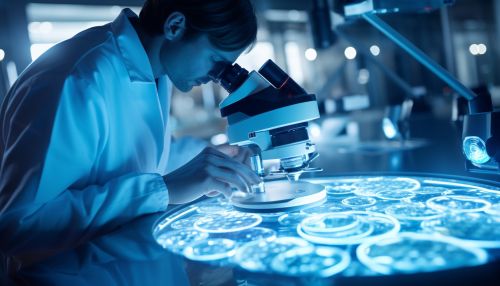Biomedicine
Introduction
Biomedicine, also known as medical biology, is a branch of medical science that applies biological and physiological principles to clinical practice. The field bridges the gap between biology and medicine, combining aspects of both in a unique synthesis that aims to improve healthcare outcomes.
History
The history of biomedicine is intertwined with the broader history of medicine and biology. The term "biomedicine" was first used in the early 20th century, reflecting a growing recognition of the value of applying biological knowledge to the understanding and treatment of disease.
Principles of Biomedicine
Biomedicine is based on several key principles. These include the cell theory, which posits that all organisms are composed of cells, and the genetic code, which provides the instructions for the development and functioning of all living organisms. Another important principle is homeostasis, the process by which organisms maintain a stable internal environment.


Biomedical Research
Biomedical research is a broad field that includes many different areas of study. These include genetics, microbiology, immunology, and pharmacology. Research in these areas can lead to new treatments and therapies for a wide range of diseases and conditions.
Biomedical Techniques
Biomedicine employs a wide range of techniques to study the human body and disease. These include microscopy, which allows scientists to view cells and tissues at a microscopic level, and genetic engineering, which involves the manipulation of an organism's genetic material.
Biomedical Applications
Biomedicine has a wide range of applications in healthcare. These include the development of new drugs and therapies, the design of medical devices, and the creation of personalized medicine strategies based on a patient's unique genetic makeup.
Challenges and Ethical Considerations
While biomedicine has the potential to greatly improve healthcare, it also raises a number of ethical and practical challenges. These include issues related to genetic privacy, the cost of new treatments, and the potential for misuse of biomedical technologies.
Future of Biomedicine
The future of biomedicine is likely to be shaped by advances in areas such as genomics, stem cell research, and artificial intelligence. These technologies have the potential to revolutionize healthcare and lead to new treatments for a wide range of diseases.
